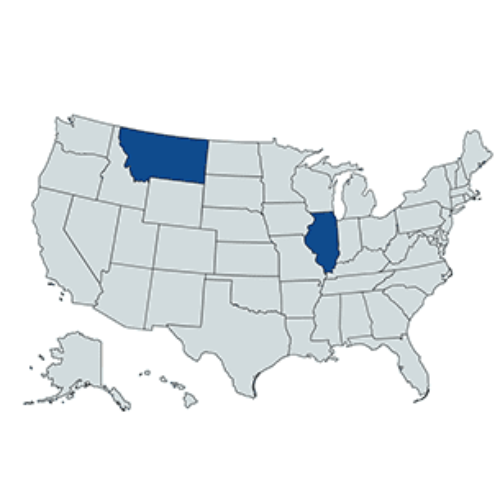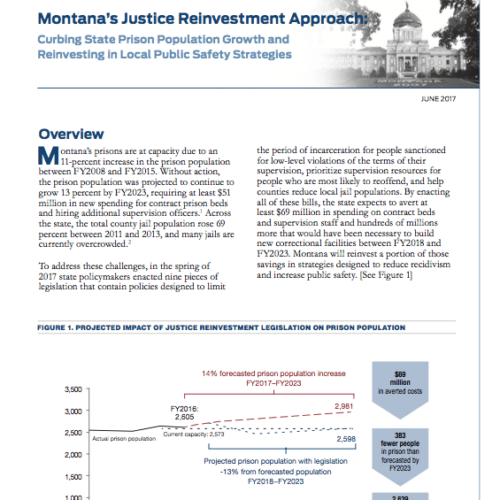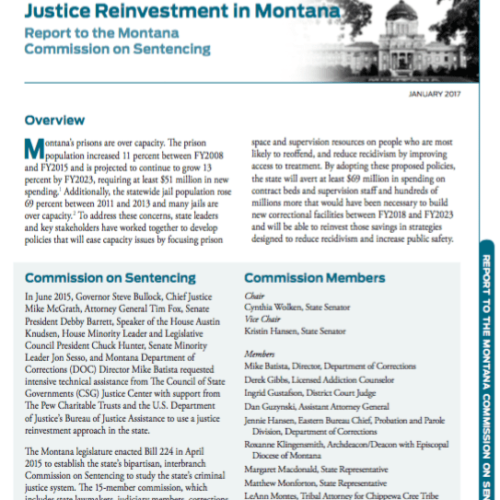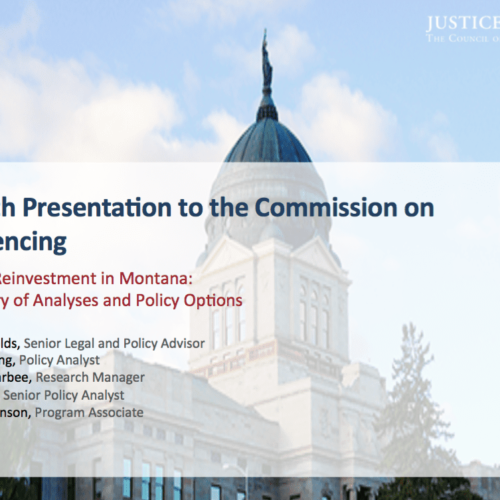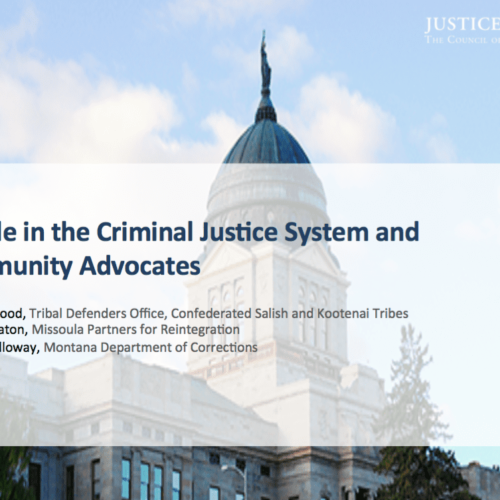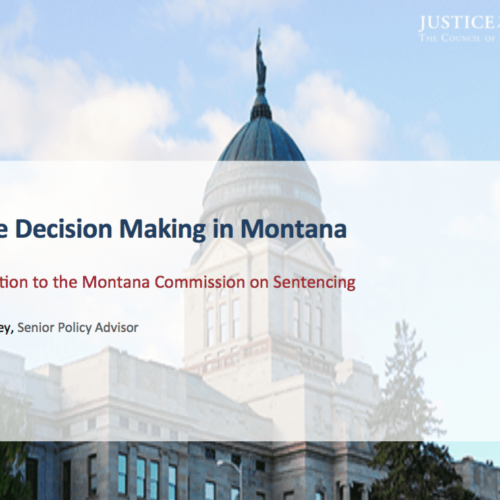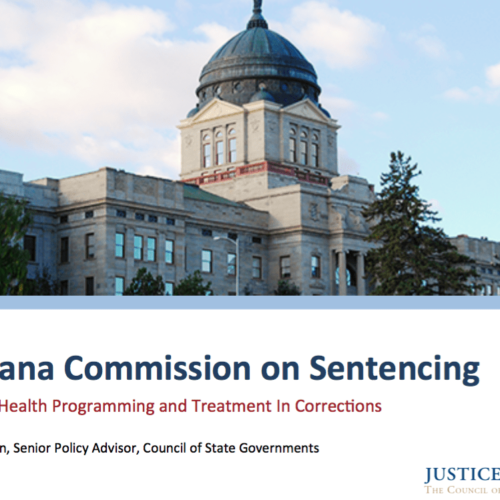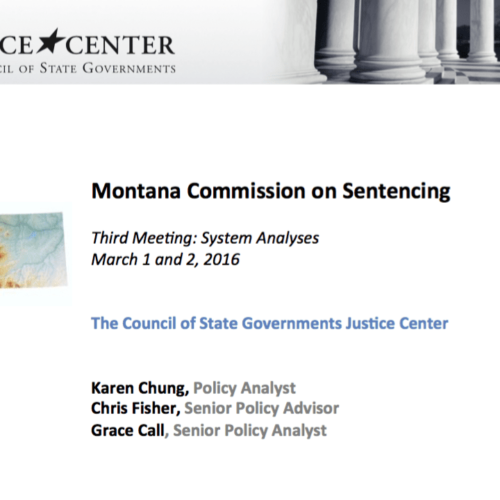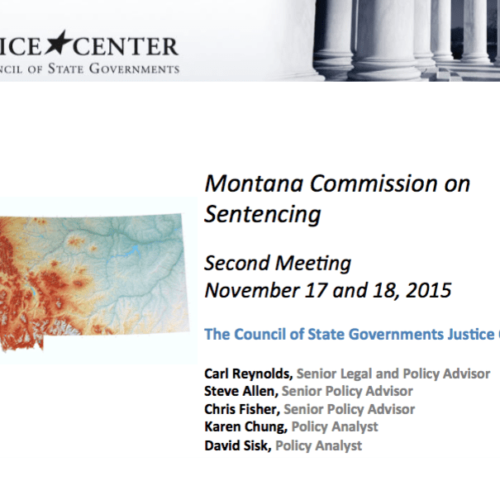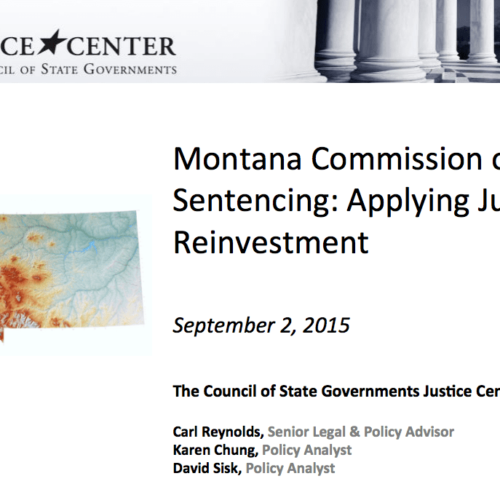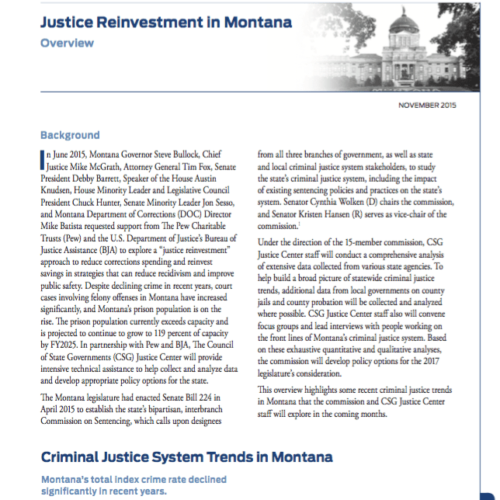Justice Reinvestment in Montana
The Problem
In 2015, Montana’s prisons were at capacity due to an 11 percent increase in the prison population between 2008 and 2015. The prison population was projected to continue to grow 13 percent by 2023, requiring at least $51 million in new spending. Additionally, the statewide jail population rose 69 percent between 2011 and 2013 and many jails were over capacity.
How JRI Helped
To address these challenges, state leaders requested intensive technical assistance from the CSG Justice Center in 2015 to use a Justice Reinvestment approach to assist the state with developing data-driven policy options designed to reduce the prison population, contain corrections spending, and reinvest in strategies that can reduce recidivism and increase public safety.
The Montana Commission on Sentencing—which includes commissioners from all three branches of government, policymakers, and other stakeholders—met multiple times between September 2015 and October 2016 to review analyses and develop policy options to ease capacity issues and reduce recidivism.
Of 12 bills recommended by the Commission on Sentencing, Montana enacted 9 pieces of legislation. Senate Bills 59, 60, 62, 63, 64, 65, 67, and Senate Resolution 3, sponsored by Senator Cynthia Wolken, and House Bill 133, sponsored by Representative Nate McConnell, codify the JRI policy framework developed by the Commission on Sentencing.
Signed into law in the spring of 2017 by then-Governor Steve Bullock, these policies allow more discretion regarding the length of incarceration for people sanctioned for low-level violations of the terms of their supervision, prioritize supervision resources for people who are most likely to reoffend, and help counties reduce jail populations. By adopting these policies, the state avoided spending millions of dollars to build new correctional facilities between 2018 and 2023. Montana will be able to reinvest those savings in strategies designed to reduce recidivism and increase public safety.
Implementation and Impacts
The legislature appropriated $2.97 million as an up-front reinvestment to develop a pretrial grant program, hire additional supervision officers to conduct presentence investigations, transition the parole board to full-time members, and develop a supportive housing grant program. The CSG Justice Center provided implementation assistance by offering guidance and training to transition the parole board from a part-time volunteer board to a full-time professional board.
The CSG Justice Center staff also provided the DOC with guidance and training to incorporate a risk and need assessment into pre-sentence investigations, develop a behavior management system to address incentives and sanctions, and create a program evaluation process. As of FY2021, the percentage of people housed in prison due to a revocation had declined 2.4 percent, and the number of revocations to prison had declined by 3.4 percent.
Additionally, the percentage of people successfully leaving supervision has increased by almost 10 percent, from 54.4 percent of all discharges in FY2017 to 59.7 percent of all discharges in FY2021. Successful completions include regular completions of probation, parole, and conditional release as well as early release and conditional discharge from supervision for eligible cases.











